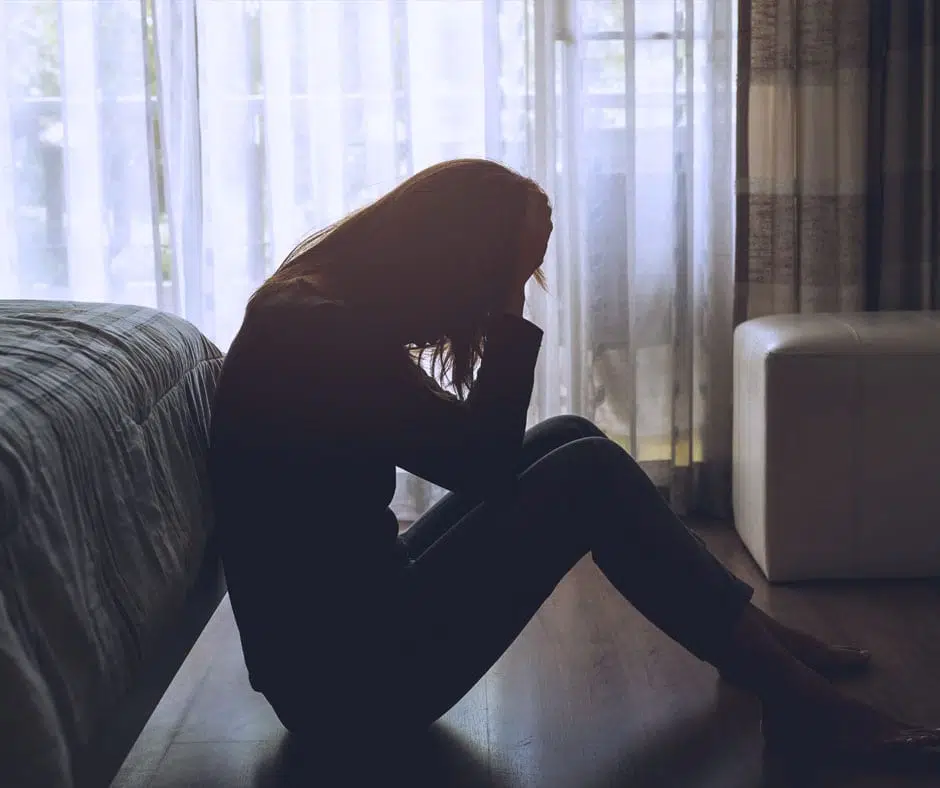“All I remember was looking up at the sun. It was so bright. I couldn’t stop staring at the sun. That is how my friend knew something was wrong. I remember laying down, and I didn’t know what just happened and I remember trying to lift my head up, and it was one of the worst pains I’ve ever felt in my life. It was like someone was jackhammering my head and I didn’t know it was because of the Xanax. It wasn’t until two years later that I found out I had been withdrawing from Xanax. I was shocked. Out of my mind, shocked. I remember the faces that my teammates and coaches had. They were so scared, and I had no clue what had just happened.”
Benzodiazepines, commonly referred to as benzos, are a class of prescription drugs prescribed for their sedative and anxiolytic properties. Benzos include drugs such as Xanax, Valium, Klonopin, and Ativan. These drugs are also known by their generic names as alprazolam, diazepam, lorazepam, and clonazepam.
Benzodiazepines are medications commonly used to sedate and treat anxiety disorders such as panic disorder and generalized anxiety disorder. Benzodiazepines work by slowing down the central nervous system, which can help to reduce anxiety symptoms and treat various conditions such as panic disorder, PTSD, or insomnia. However, long-term use of benzos can lead to psychological and physical dependence, resulting in withdrawal symptoms when the medication is discontinued.
Benzodiazepine Withdrawal Syndrome
Benzodiazepine withdrawal, also known as benzo withdrawal, refers to the symptoms experienced when someone discontinues or significantly reduces their benzodiazepine dosage after they have been using the medication for a long period of time.
Benzos are physically and psychologically addictive. The more time someone spends using or abusing benzos, the more accustomed to the drug their body becomes. Benzodiazepines work on the reward, mood regulation, and motivation regions of the brain. Our brain is an amazingly adaptive organ. Our whole system, mind, body, and spirit acclimate to whatever we put into our system on a frequent intensive basis. Acclimation turns into dependency. So, when we suddenly remove the substance our brain has grown used to receiving, the body goes into shock, and the nerves rapidly attempt to fire on all cylinders.
When a person’s body develops a dependence to benzos like Xanax or Klonopin, they cannot stop taking the drug, or else they will develop severe withdrawal symptoms. Withdrawal is a set of physical and psychological symptoms that can occur within hours after you stop using psychoactive drugs at higher doses or more frequently than prescribed. Withdrawal symptoms can vary in intensity and duration depending on the individual and the length of time they have been taking the drug, the type of benzo used, how much of the drug they were taking, underlying medical conditions, and also individual genetics and characteristics. The most common benzo withdrawal symptoms include:
- Anxiety
- Sensory hypersensitivity
- Poor memory
- Heart palpitations
- Sweating
- Muscle twitching
- Muscle pain
- Blurred vision
- Headaches
- Insomnia
- Loss of appetite
- Paranoia
- Delirium
- Tremors
- Panic attacks
- Seizures
In some cases, individuals may also experience more intense withdrawal symptoms, such as hallucinations, panic attacks, and even seizures.
Benzo Withdrawal, Seizures, and the Importance of Benzo Detox
Benzos are deceptively dangerous drugs to withdraw from because of the severity of the symptoms. Seizures are one of the most dangerous withdrawal symptoms and are one of the main reasons why a proper medical detox and withdrawal management is necessary when stopping a benzo medication.
Quitting benzos cold turkey can cause convulsions, seizures, psychosis, paranoia, mood swings, mania, and death. Seizures can cause a loss of consciousness and violent muscle contractions. It is also dangerous to detox from benzos alone, especially if users have been abusing alcohol and Xanax together. It is essential to monitor blood pressure, heart rate, respiration levels, and temperature. Seizures are a well-documented benzodiazepine withdrawal symptom and can sometimes result in death.
Benzodiazepine withdrawal is notable because it is one of the only drugs with which the withdrawal can be deadly. Again, benzo withdrawal symptoms can be fatal so it is crucial for individuals seeking to overcome benzodiazepine addiction to undergo a benzo detox under the care of healthcare professionals and mental health professionals.
“I was having a Grand Mal seizure. Foaming at the mouth, and I was convulsing for about thirty seconds. I was taking Xanax in fistfuls. It became normal for my body to depend on and expect five bars of Xanax at a time. The morning I had my seizure I had run out of pills. I had been taking Clonazepam three times a day as well as my Xanax. I thought I had to. I viewed it as medication. It was my medication. The morning I convulsed, I had volleyball practice at 8 am. I was out of pills. I seized because I was withdrawing.”
“After (the seizure) I kept taking (Xanax) for two years. I couldn’t stop, and I didn’t know that was the problem. I thought it was my medication and I would justify it all the time. It was my prescribed medication. Then alcohol became my medication.”
“When I realized the Grand mal seizure was because of Xanax withdrawals, that is when my detox cycle began. I was so scared of having another seizure. I went to detox four or five times a year just to get clean from the Xanax, and then I would start the cycle of using again. Then I went to two and a half rehab facilities in two and a half years.”
How Long Do Benzodiazepine Withdrawal Symptoms Last?
The first benzo withdrawal symptoms will typically begin within a few hours of the last dose taken. The worst of the benzo withdrawal symptoms will occur around the two week mark. This is when individuals are most likely to experience the most dangerous and uncomfortable withdrawal symptoms as their body adjusts to the absence of the drug.
Even after the acute withdrawal symptoms subside, individuals will likely have to grapple with protracted withdrawal syndrome, or Post-Acute Withdrawal Syndrome (PAWS). Although protracted withdrawal symptoms are less severe and less dangerous than symptoms experienced during the acute withdrawal phase, but can still be extremely difficult to manage. PAWS symptoms of benzo withdrawal include:
- Depression, anxiety, agitation, or restlessness
- Increased sensitivity to stress and emotional instability
- Persistent cravings for the drug
- Difficulties with concentration and cognitive function
- Sleep disturbances and fatigue
Everyone’s benzodiazepine withdrawal timeline will be different, but these protracted withdrawal symptoms can persist for an extended period, potentially lasting for weeks or even months after the initial acute withdrawal phase. It is crucial for individuals undergoing benzo detox to recognize and manage these challenges as part of their recovery process. With the support of healthcare professionals and a comprehensive treatment plan, individuals can navigate through acute benzo withdrawal, post-acute benzo withdrawal, reduce the risk of relapse, and achieve long-term sobriety and well-being.
Again, it is crucial for individuals seeking to overcome benzodiazepine addiction to undergo a benzo detox under medical supervision.

Benzodiazepine Detox and Benzo Withdrawal Treatment
Benzodiazepine detox provides a structured and supportive environment for individuals to safely withdraw from benzodiazepines. Under the care of healthcare professionals and mental health professionals, medical detox helps to alleviate uncomfortable and dangerous withdrawal symptoms.
Medically supervised detox is an important part of addiction treatment. Attempting to detox from benzodiazepines without medical supervision can be dangerous and potentially life-threatening. Therefore, seeking professional help and undergoing a medically supervised benzo detox is strongly recommended for anyone struggling with benzodiazepine addiction.
What is Benzodiazepine Detox Like?
During a stay at a benzo detox facility, you will gradually taper off the medication under the supervision of a healthcare professional. The medical team can monitor vital signs, provide medications to relieve withdrawal symptoms and offer psychological support to address the emotional challenges that may arise during this process.
In some cases, treatment may involve switching to a longer-acting benzodiazepine medication to help ease the transition off of Xanax. Healthcare professionals may also prescribe medications to help manage specific symptoms, such as anticonvulsants to prevent seizures.
In addition to physical symptoms, benzodiazepine withdrawal can also impact mental health. It is not uncommon for individuals going through benzo detox to experience heightened anxiety, depression, and mood swings. In addition to medical treatment, therapy can also be helpful for individuals going through Xanax withdrawal. Therapy can help to address underlying mental health conditions, such as anxiety disorders or post-traumatic stress disorder (PTSD), which may have contributed to the development of Xanax dependence. Dual diagnosis programs are ones that treat co-occurring mental health disorders and substance abuse issues.
It’s also worth noting that some individuals may turn to other drugs during the withdrawal process in an attempt to self-medicate or alleviate their symptoms. This can lead to a vicious cycle of addiction and further complicate the detoxification process. Therefore, it is crucial for individuals to receive comprehensive addiction treatment that addresses the underlying causes of their substance abuse and provides them with the necessary tools to maintain sobriety.
Help for Xanax Addiction
If you or a loved one is struggling with Xanax addiction and withdrawal, it is crucial to seek professional help. Clear Behavioral Health provides a comprehensive range of services, including drug detox and alcohol detox, residential drug rehab, and dual diagnosis outpatient programs. With a team of experienced healthcare professionals, Clear Behavioral Health can help individuals safely and effectively overcome Xanax addiction and withdrawal, and work towards a healthier, happier future. Contact Clear Behavioral Health today to learn more about their treatment options and take the first step toward recovery.

